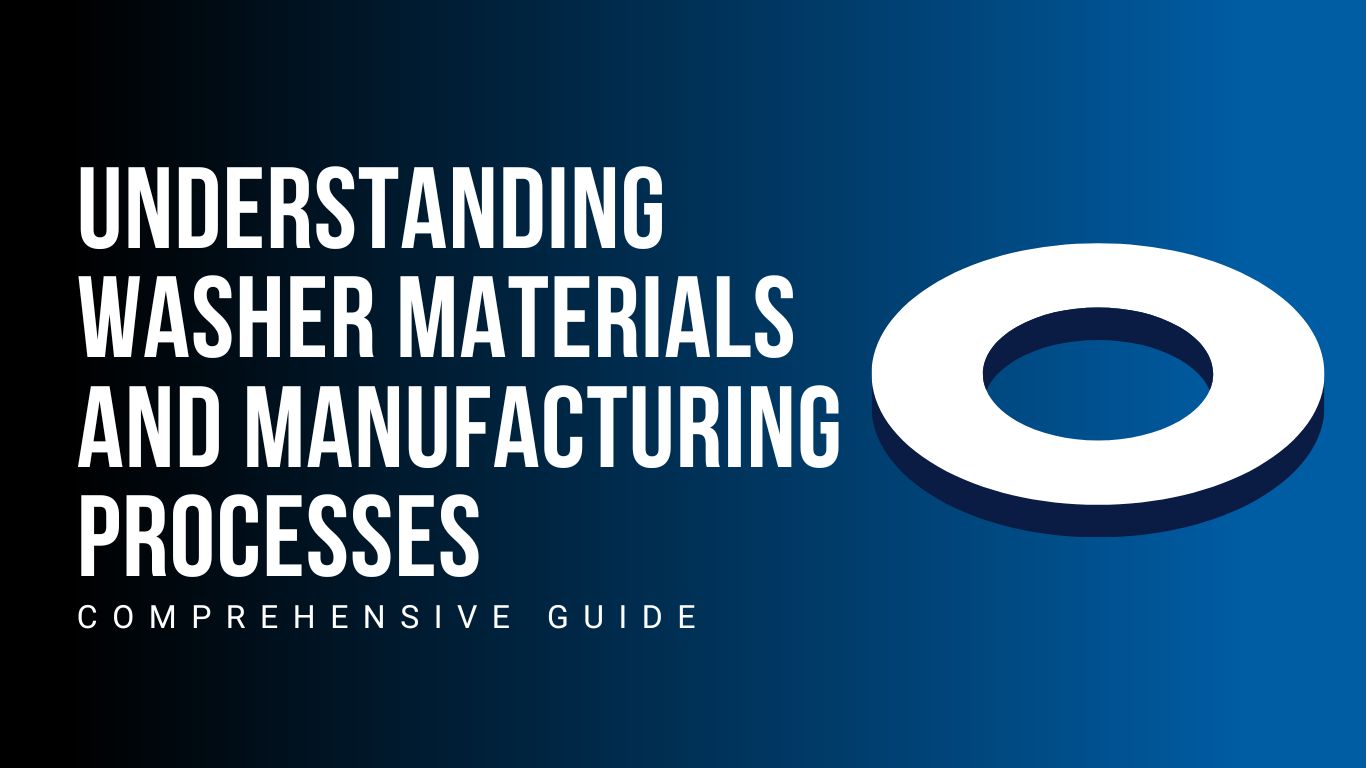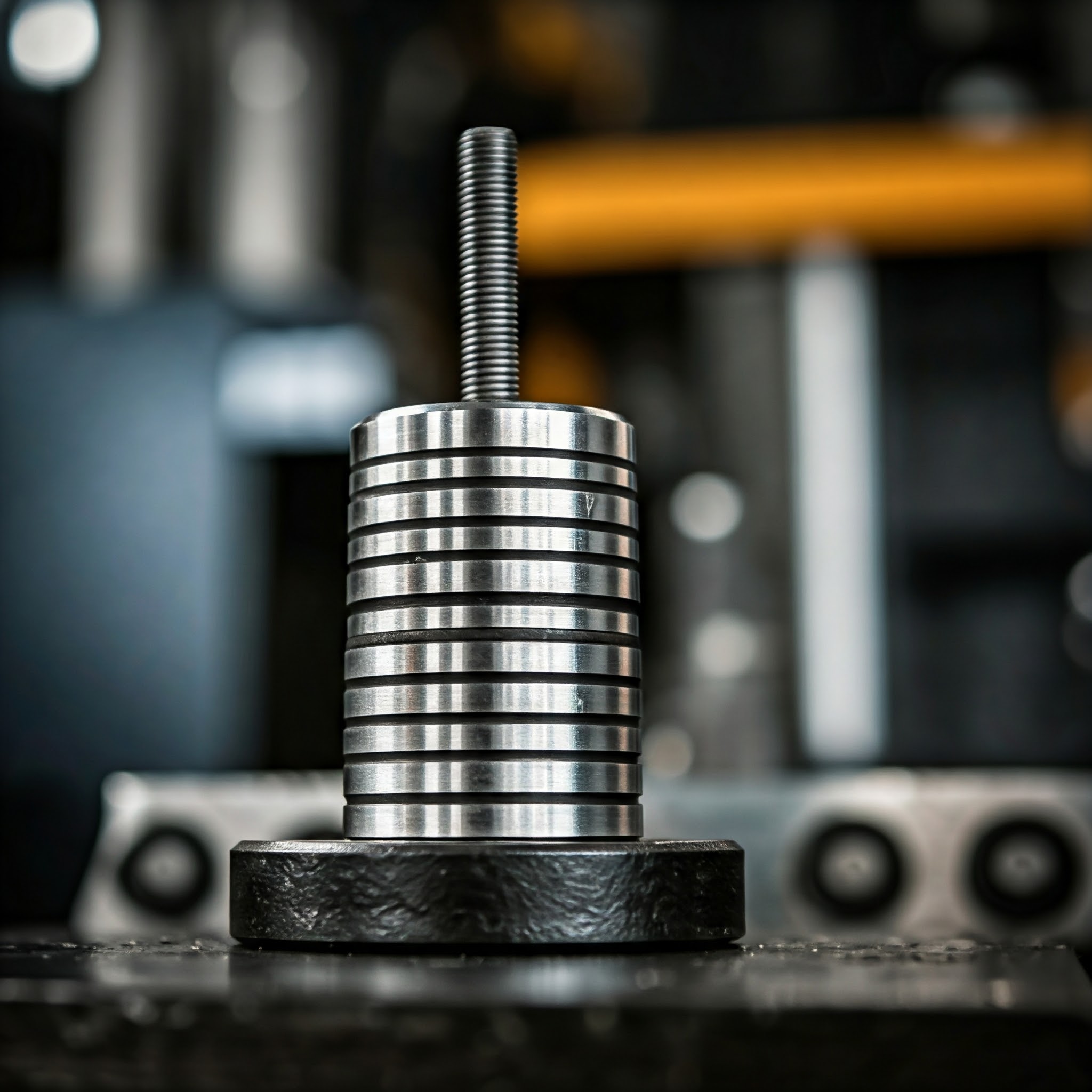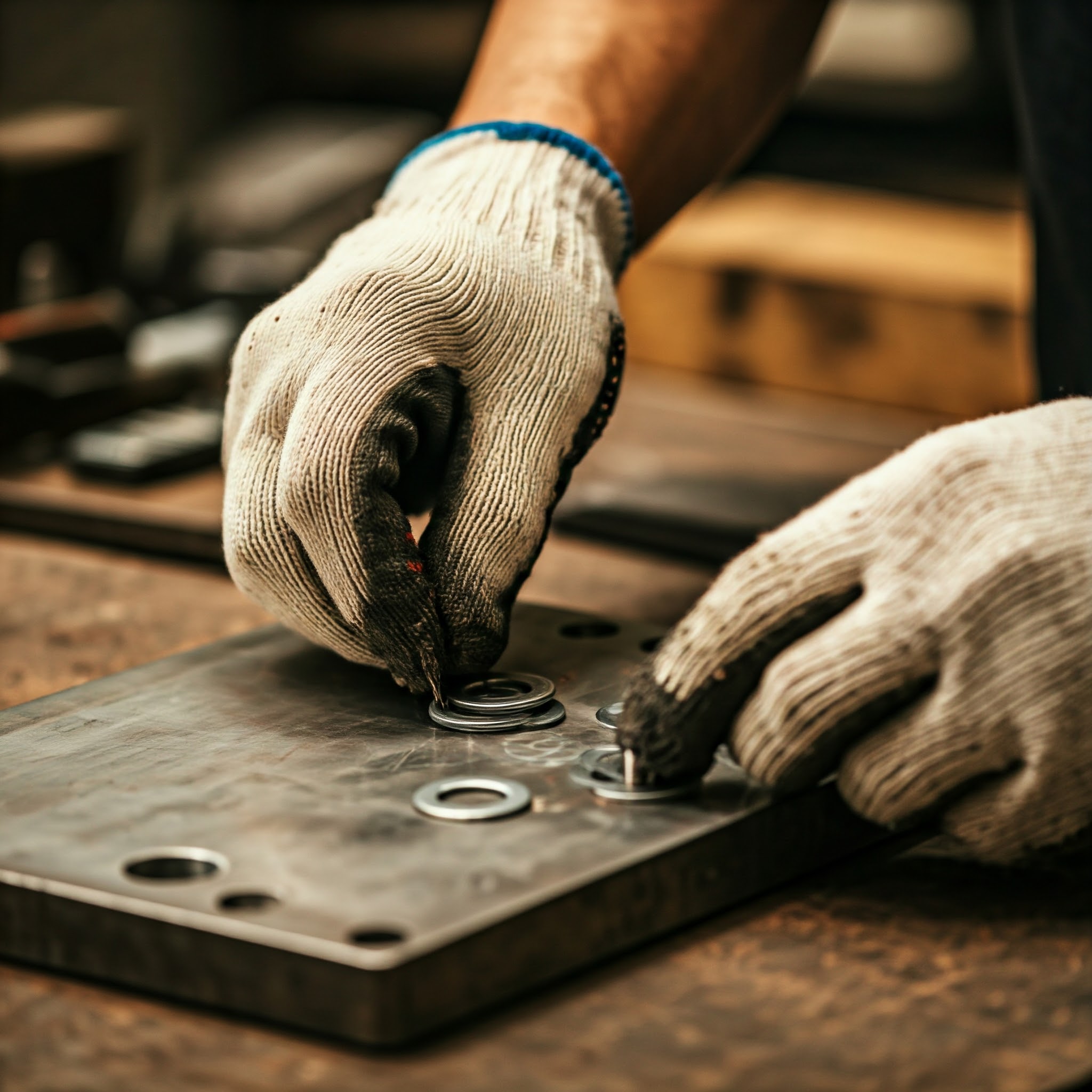
When it comes to fasteners and hardware, washers play a crucial role in ensuring the durability, security, and efficiency of mechanical assemblies. Whether you're working on automotive projects, industrial machinery, or even home repairs, knowing about the materials and manufacturing processes of washers can help you make informed decisions. In this guide, I’ll walk you through the different washer materials, manufacturing processes, and how to choose the right washer for your needs.
Washers are small, yet powerful components used in various industries. They serve as spacers, load distributors, and vibration reducers. Depending on the specific requirements, you might need different types of washers—such as shim washers, machined washers, or spring lock washers. Whether you're working with a shim washer manufacturer or sourcing industrial washers, understanding the materials and manufacturing processes behind these components can help you make the best choice for your project.

There are various types of washers, and each serves a different purpose. Here's a look at the most common washer types, the materials used for manufacturing them, and their unique functions.
Shim washers are thin washers used to fill gaps and provide precise spacing between components. Shim washer manufacturers typically use materials like stainless steel or carbon steel to ensure the washers provide the needed support.
Common materials for shim washers:
These materials are chosen for their strength, flexibility, and resistance to corrosion, making them ideal for precision applications in industries such as aerospace and automotive.
Machined washers are precision-engineered components designed for specific applications. Washer manufacturers use advanced machining processes to achieve high accuracy, making them suitable for applications that require high tolerances.
Common materials for machined washers:
Machined washers are often used in industries such as electronics, medical devices, and machinery, where performance and reliability are paramount.
Industrial washers are typically used in heavy-duty applications. These washers are larger and thicker to accommodate the high loads and stresses they will endure.
Common materials for industrial washers:
They are essential in sectors such as construction, manufacturing, and oil and gas industries, where robustness and durability are key.
Washers such as ogee washers, tab washers, conical washers, and fender washers fall under the specialty category. These washers have unique shapes and features that make them suitable for specific purposes.

The manufacturing of shim washers is a precise process, and there are a few common methods that manufacturers use. Each process is chosen based on the washer's intended use, material properties, and required tolerances.
In the stamping process, a washer is cut from a flat sheet of metal using a press. This process is ideal for producing large quantities of washers at a low cost. It’s commonly used for producing industrial washers, spring lock washers, and external tooth lock washers.
For washers that require high precision, machining is often the preferred process. This involves using lathes, mills, and other CNC machines to create washers with specific dimensions. This is the process typically used for machined washers that need to meet strict tolerances.
Heat treatment is used to enhance the properties of washer materials. Heat-treated washers like self-locking washers and wedge lock washers are often subjected to processes like tempering or annealing to improve their strength and resistance to wear.
Selecting the right material for your washer is crucial to ensure it performs optimally in its intended application. Here are some key factors to consider:

Washers may seem like small components, but they play an essential role in a wide range of applications. Understanding the materials and manufacturing processes behind washers helps you make the right choices for your project. Whether you're sourcing shim washers, spring lock washers, or fender washers, the material and process will dictate their performance, durability, and reliability.
Remember, the next time you need to choose a washer, consider factors such as material strength, corrosion resistance, and the specific requirements of your project. By doing so, you'll ensure that your washers deliver the performance you need and contribute to the overall success of your assembly.
Our range of shim washers includes machined washers , industrial washers , ogee washers , tab washers , conical washers , sealing washers , and more. Designed for various applications, they ensure precise alignment, secure fastening, and durability in industries like aerospace, automotive, construction, and manufacturing. Whether you need industrial washers for heavy machinery, sealing washers for fluid systems, or ogee, tab, and conical washers for specialized uses, our selection guarantees optimal performance.



